|
“The world as we have created it is a process of our thinking. It cannot be changed without changing our thinking.” - Albert Einstein
We’ve all heard the phrase “change is inevitable” and yet so many of us struggle with change and try to fight to keep things the same. In permaculture, one of the principles I found to be of great value to my understanding of this practice is the principle Creatively Use and Respond to Change. In permaculture, we accept the fact that our world, our ecosystems, our weather and climate, our population, our economy, EVERYTHING is constantly in flux and that it’s a purposeless act to try to stop change from happening but our response to change and how we creatively move with the changing times is within our control. The other aspect of this principle is that if we know of changes occurring, we can plan and design for them. We can plan and design for the change of seasons. We can plan and design for the succession of an ecosystem, how it changes and grows and withers over time. We can plan and design for social changes, ensuring that we open up to new community members and ideas as they weave into our existing neighborhoods and towns. We asked people at our May launch events, what changes would you like to see in your community and why? Here is what we heard: What changes would you like to see in your community? Any why? • Community gardens • Replanting maples along roads • Walking trails • More planters downtown • More areas for people to grow their own vegetables, etc. if unable due to rental living • A skate park • More participation; More community members advertising the cause to improve local awareness of our project • I love that you will be teaching permaculture! Old attitudes need to change. NH is surprisingly stubborn. I’m struggling with our river/riparian ecosystems and wanting some more protection and restoration. We should be seeing more food growing and less lawns. More fruit trees, berries, foraging, etc. • Collaboration among human/social services and recreation and permaculture (i.e. Tyler Blain House Homeless Shelter community garden to supplement food pantry) • Preservation/Conservation of land when warranted • Dog park, as a gathering place • More for teens to do, and a teen center isn’t really the answer • Littleton needs more gardens and flowers that attract birds, bees, etc. • More purposeful use of spaces . . . . . and less trash! • We should accentuate the positive – how can that be wrong • Community gardens (near tracks/DDs in Whitefield) • Bike-friendly and pedestrian-friendly tails linking inns, trails, schools, restaurants and town centers. This would allow our recreation minded community members to be free to commute in a healthy, eco-friendly way • Promotion and implementation of reduction in plastic in public schools • A more integrated trail network where I can hike and bike in a safe environment • Edible perennial gardens for the community • Eco-building, water harvesting and edible landscaping demonstrations in local parks and town squares. Also at pre-existing educational institutions. • More flowers and more colors, and natural colors • Have random areas around town for wildflowers • Faster pace in returning to small town shops; cobblestone streets, rock gardens, etc. • Community gardens (near the tracks/Dunkin Donuts in Whitefiedl) • More purposeful use of spaces . . . . and less trash As Root to Rise works with our local communities on planning, designing and creating permaculture spaces, we will look for ways to integrate these suggestions into the work we do. We know that we build a strong, resilient community by supporting a diverse set of ideas and perspectives. We know change is inevitable and we are happy to find the skills of creativity and adaptability in working with change as opposed to trying to stop it. If you want to join us at our first design workshop where we will change the ecosystem of a local business in downtown Bethlehem, contact Stacey Doll at [email protected]. Our design workshop at Rek-lis’ brewing company is from July 5th – 12th. You are welcome to be part of any piece of the design process or join us for the whole adventure. You won’t be disappointed!!
2 Comments
Once you have a chance to read a few definitions of permaculture and share examples of permaculture gardens and designs, its easy to think that permaculture is all about caring for the natural world, when in fact, Earth Care is just one of three ethical pillars of permaculture. In addition to Earth Care, permaculture balances people care and fair share as the three ethics to root every project and every decision. It’s in caring for the people that permaculture now becomes more than just a practice of conservation, recycling, and growing food, but it becomes a practices of building relationships, connections, choosing collaboration over competition.
David Holmgren, one of the founders of the permaculture movement, states, “People Care begins with ourselves and expands to include our families, neighbors and wider communities. The challenge is to grow through self-reliance and personal responsibility. Self-reliance becomes more feasible when we focus on non-material well-being, taking care of ourselves and others without producing or consuming unnecessary material resources. By accepting personal responsibility for our situation as far as possible, rather than blaming others, we empower ourselves. If we can recognize that a greater wisdom lies within a group of people, we can work with others to bring about the best outcomes for all involved.” Root to Rise is very excited to have the opportunity to practice People Care by building relationships with organization, businesses and communities and choosing to focus on projects that not only restore and regenerate our natural ecosystems but also restore and regenerate our connection to each other. At the launch event at Rek-lis’ Brewing Company on May 25th, we asked, What organizations do you feel Root to Rise could collaborate with in order to improve community involvement and revitalization? The participants responded with the following:
Root to Rise is considering a Pay-It-Forward model for permaculture projects where organizations like the Littleton Recreation Department and the Boys and Girls Club can work together, with Root to Rise, to design and install aspects of the projects underway this summer and in return, their projects will be the next projects we engage in this fall and spring. By being part of someone else’s project, you are essentially practicing the People Care ethic, giving before receiving, building relationships and collaborating on projects instead of competing for resources. We are all in this together and Root to Rise is excited to offer a platform for building connections and friendships. Our first design workshop is at Rek-lis’ Brewing Company July 5th – 12th. Message me if you are interested in participating: [email protected]. I am so filled with gratitude from the wonderful turnout at the two launch events we held for Root to Rise. On Thursday, May 24th we met at Schilling Brewing Company where members of our community leadership gathered to network, to learn more about Root to Rise and our work, and to hear from Todd Workman of PermaCityLife about the success stories of Franklin, NH where permaculture has laid the foundation for economic development and community revitalization. Taylor Caswell, NH State Commissioner of Business and Economic Affairs, who attended the event, said that, “The key to New Hampshire‘s economic future is our communities and what they offer to a wide variety of people who want to live and work in our beautiful state. The role of organizations like Root to Rise to help meet those expectations is a big part of how it will be done."
On the second night, Friday, May 25th, the Root to Rise Board hosted a public event at Rek-lis’ Brewing Company and asked the participants to share their insights on permaculture, ideas for community revitalization, and ways to connect with efforts already underway in our region. We shared, laughed, gave away prizes, and at the end of the evening, walked away with lots of great input from the community as well as many new friends. I want to share with you some of the ideas we heard from the community, and over the next few weeks, we’ll share more of what we heard from those two events as well as efforts underway to integrate Root to Rise’s mission of permaculture education and community resiliency into the great work happening in our region. At our first event, several community leaders had pulled me aside to say, “So Stacey, what exactly is permaculture,” and “can you give me a few talking points so I can share it with others.” Although I love to teach and practice permaculture, I often find it hard to capture the essence of this lifestyle in a few sentences. At the second event, we asked the participants, “What do you know about permaculture and why might you be interested in learning more?,” and this is what we heard:
And that’s where I have good news for you! This summer, Root to Rise will be hosting a permaculture design workshop at Rek-lis’ Brewing Company the week of July 5th – July 12th. We will have students of permaculture and those with permaculture design experience participating but anyone can participate, and we encourage you to participate to really understand this practice. This workshop is supported by the Dorr Foundation so instead of monetary compensation for attending the workshop, we just ask for your full commitment to the design process and that you “give back” by participating in at least one implementation workshop, or what we call a PermaBlitz, where we take a design and spend a day or two with shovels, gloves, mulch, plants, good food, and good company making the design come to life. For more information, please contact me at [email protected]. This is just one of many workshops and hands-on learning experiences we are providing. Come out and join us, and embrace your own definition of permaculture. |
Details
Archives
April 2020
Categories |
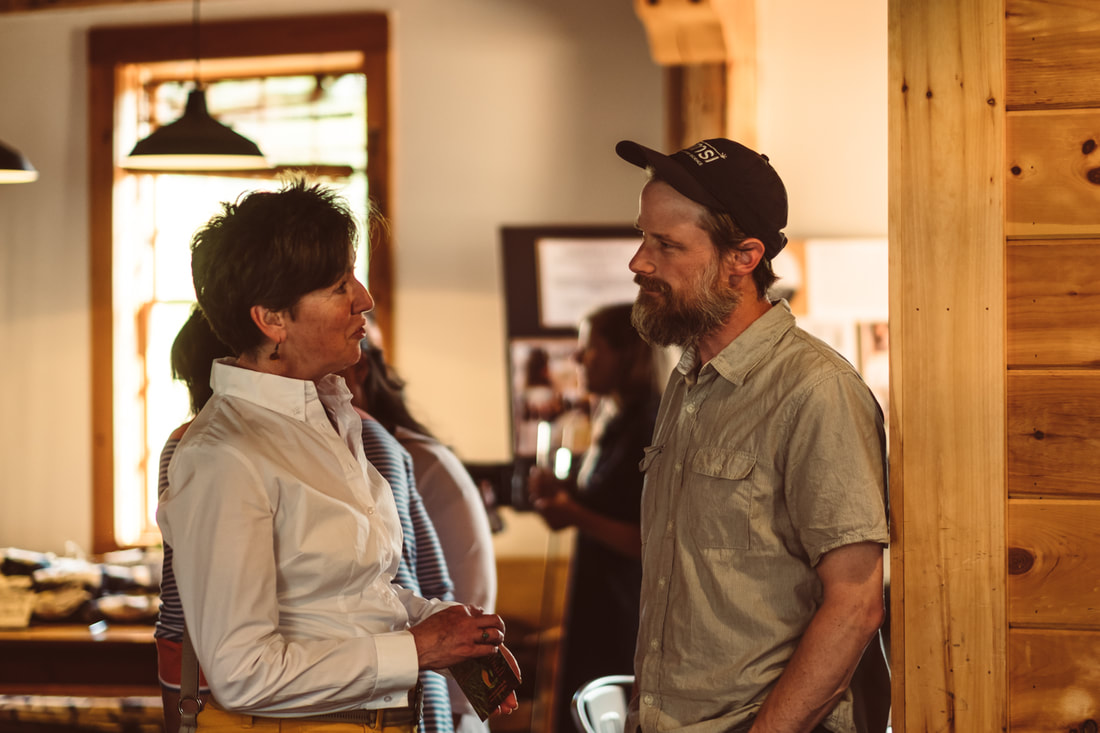
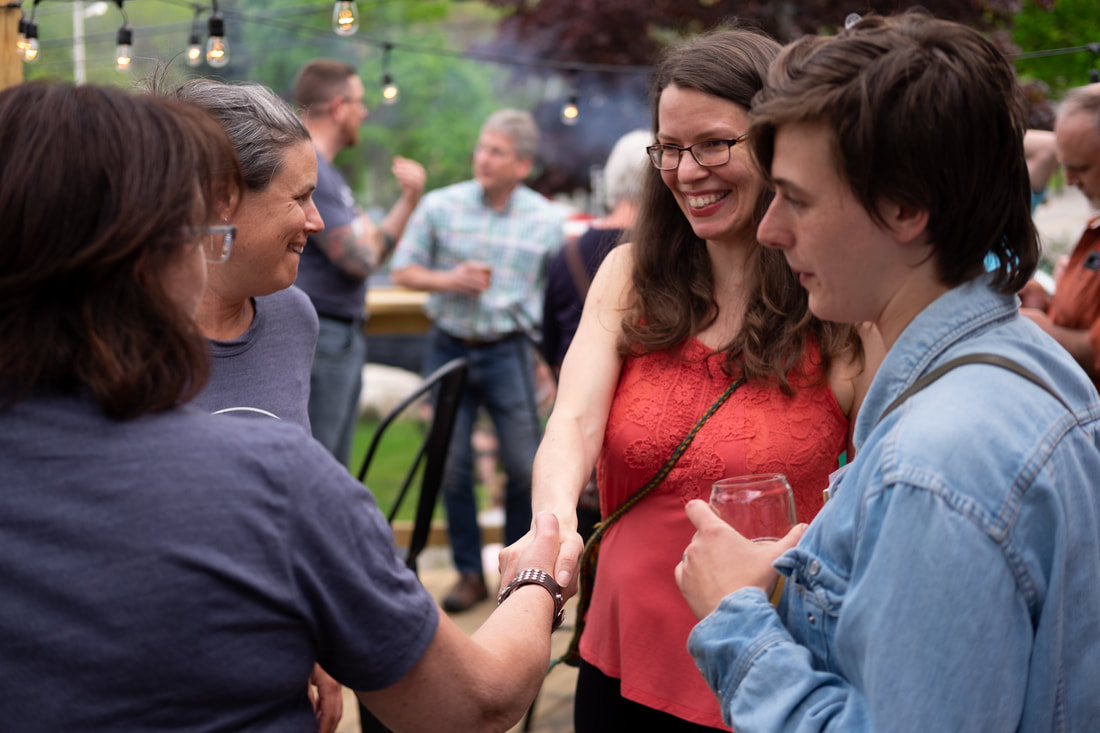
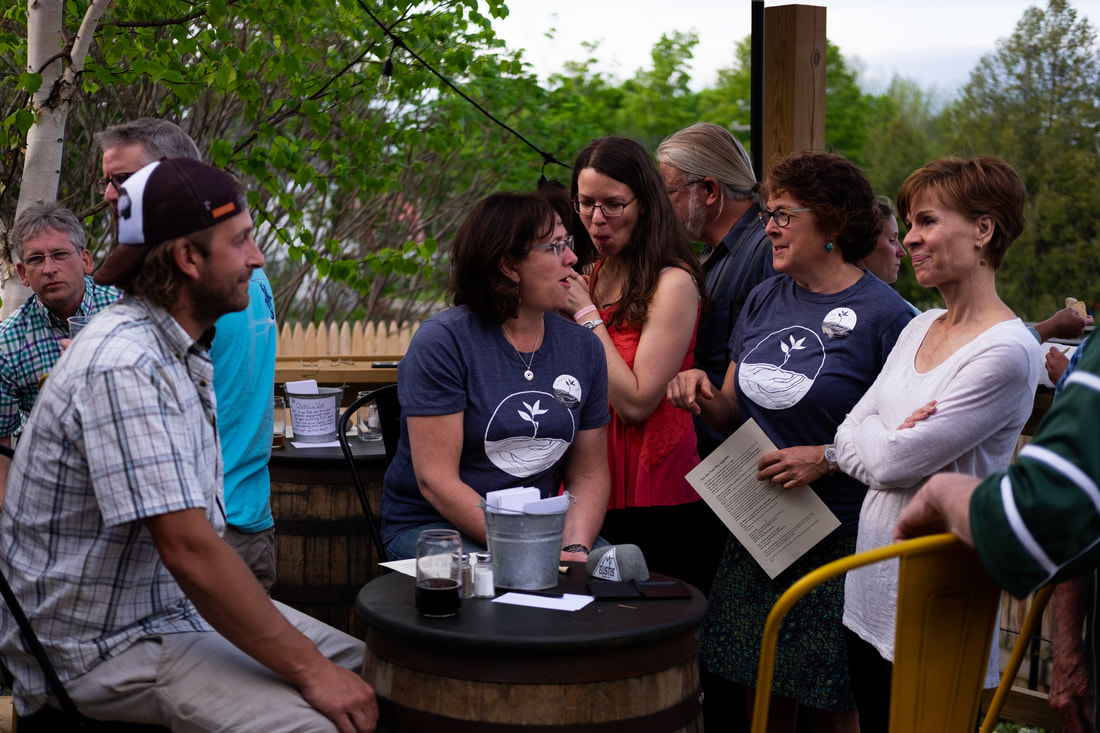
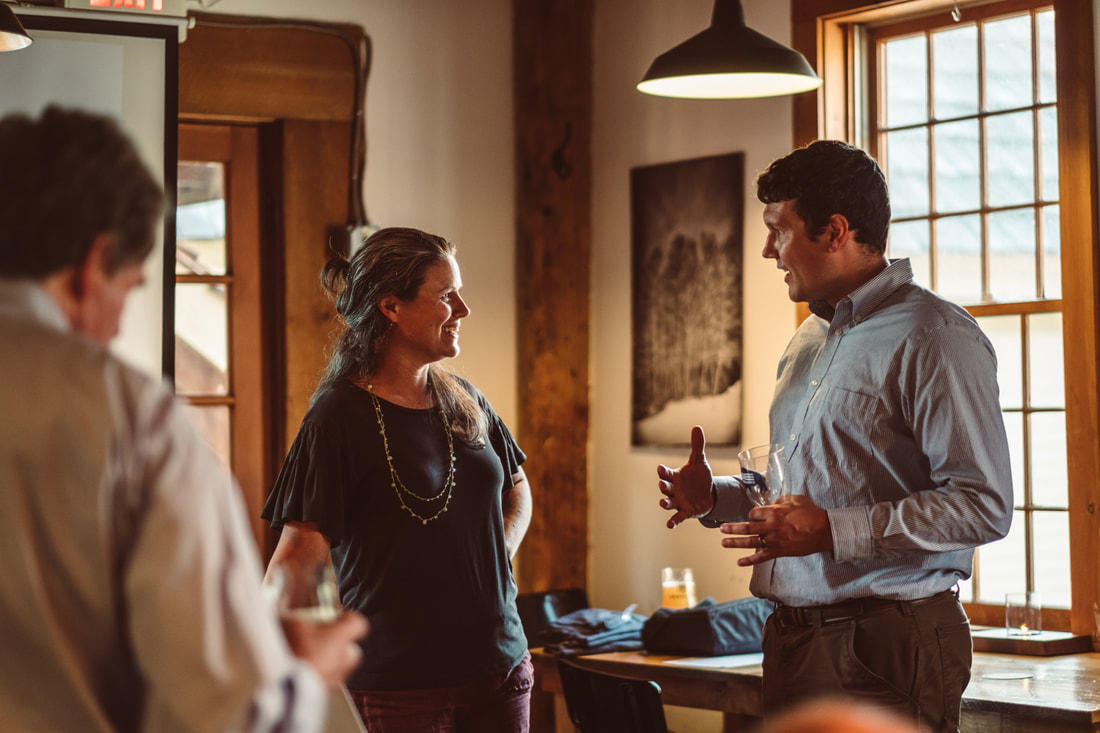
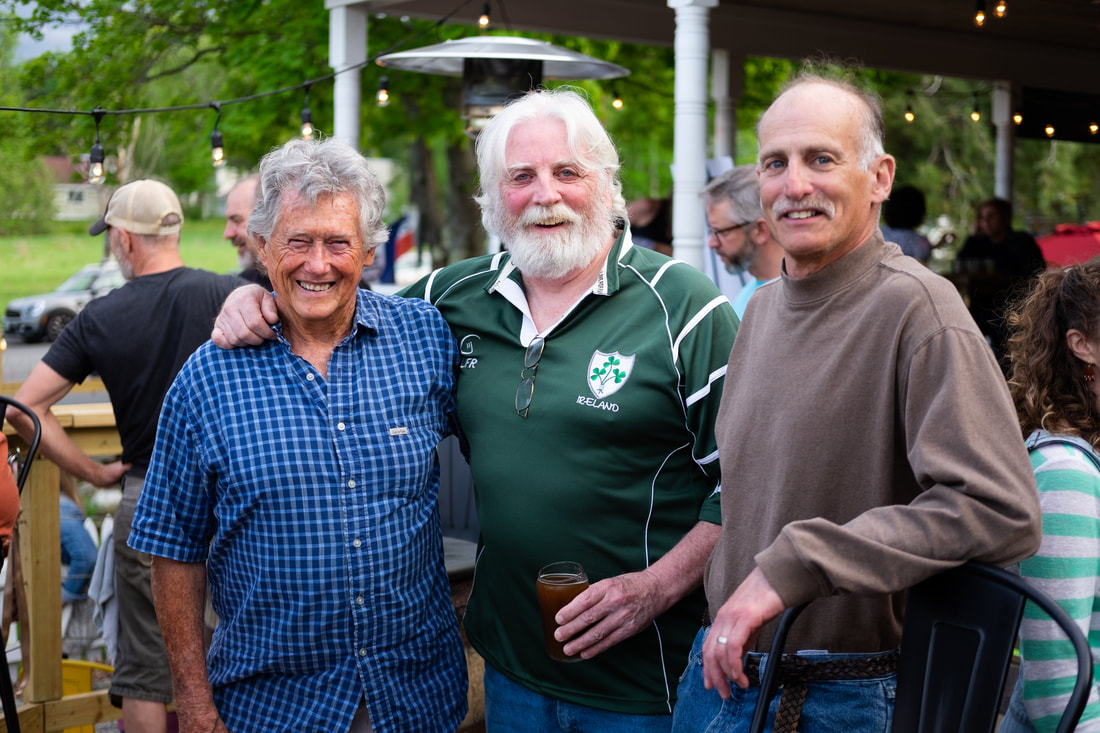
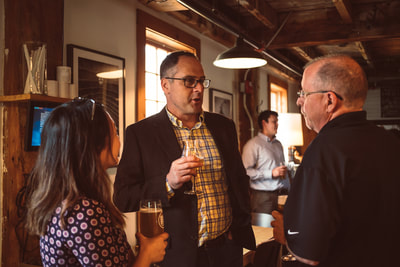
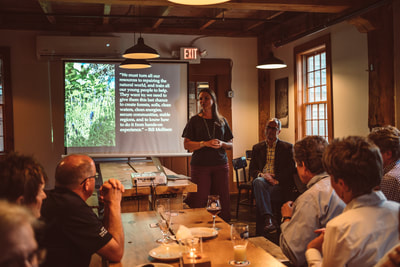
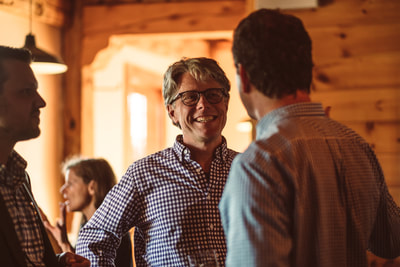
 RSS Feed
RSS Feed